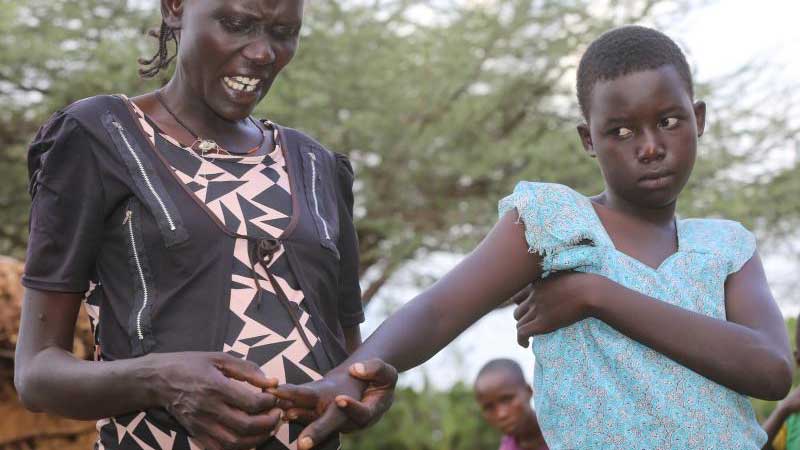×
The Standard e-Paper
Fearless, Trusted News

Pamela Tiren has borne the brunt of human-wildlife conflict. She lives on the shores of Lake Baringo, at Siriangot village and can give details of what a snake bite entails.
In 2007, her then three-year-old daughter, Gladys Chesang, was bitten by a snake and has been scarred for life; her hand became deformed. Pamela herself is a survivor of a snake bite.